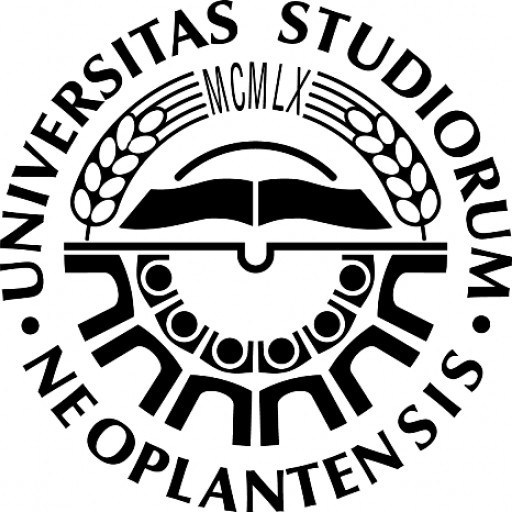Hydraulic, Water Resources and Environmental Engineering is a comprehensive academic program offered at the University of Novi Sad, designed to prepare students for a professional career in the management, design, and operation of water systems and environmental protection. This program provides in-depth knowledge and practical skills necessary to address contemporary challenges related to water resources, hydraulic structures, environmental sustainability, and ecological conservation. Students will study fundamental topics such as fluid mechanics, hydraulics, hydrology, water supply systems, wastewater treatment, environmental protection, and sustainable development. The curriculum is structured to combine theoretical foundations with practical applications, enabling graduates to analyze complex water-related issues, design innovative solutions, and participate in projects that contribute to societal well-being and environmental preservation.
Throughout the program, students gain hands-on experience through laboratory work, field studies, and internships with industry partners. They learn to use advanced engineering tools and software for modeling and simulation, facilitating accurate planning and management of water resources and environmental systems. Emphasis is placed on sustainable practices, environmental impact assessment, and policies that promote responsible water use and environmental stewardship. Graduates of this program are well-equipped to work in multidisciplinary teams on infrastructure projects, environmental monitoring, water management agencies, and consulting firms. They can pursue careers in designing hydraulic infrastructure, managing water resources efficiently, or implementing environmental protection measures. Additionally, the program encourages continuous learning and professional development to adapt to evolving technologies and regulations in the water and environmental sectors. With a strong foundation in engineering principles and environmental sciences, students are prepared to contribute effectively to addressing global water challenges and fostering sustainable development.
Detailed Course Facts
Application deadline 21, 22, 23 June; 1, 2 September; 28 September Tuition fee- EUR 1500 Year (EEA)
- EUR 1500 Year (Non-EEA)
700 euros for Serbian citizens; 1500 euros for non Serbian citizens
Start date October 2015 Duration full-time 48 months Languages Take an IELTS test- Serbian
Course Content
The first two years of undergraduate studies are common for all programs. Courses offered during the first two years of undergraduate studies are:
The core courses Mathematics I, II and III, The Application of Computers, Physics, Mechanics I and II establish the basis for civil engineering studies in general.
The core courses Strength of Materials I and II (in the area of deformable and non-deformable solid body mechanics) and Fluid Mechanics provide the background for the areas of structural engineering: hydraulic and environmental engineering.
The courses Civil Construction Materials (core) and Technology of Concrete (elective) establish the basis for materials engineering; the course Principles of Transportation Engineering introduces the elements of transportation engineering; the core course Geology and Petrology and the elective course Engineering Geology cover the field of geology. And the core course Geodesic Surveying covers the field of surveying.
In addition, the common two years include the core courses Buildings I and Descriptive Geometry, and the elective courses Buildings II, Civil Engineering Economics, Sociology, English Language I, German Language I, and Principles of Building Design.
Courses offered during the final two years of undergraduate studies within the Hydraulic, Water Resources and Environmental Engineering Program are:
The core courses Hydraulics I (steady flow), Hydraulics II (unsteady flow), Ground Water, Hydrology I, Hydrology II, and Hydroinformatics are fundamental courses in this field of study. These courses are the basis for applied courses in the same area.
The core courses Principles of Hydraulic and Water Resources Engineering, Hydraulic Structures, Irrigation and Drainage, Water Supply and Wastewater Systems, River Hydraulics, Morphology and Training Works are applied courses covering traditional engineering activities in the area of hydraulic and water resources engineering. The core course Wastewater treatment and elective courses Water Quality and Water Protection are applied courses in the area of water-related environmental engineering.
The core course Soil Mechanics and the elective course Principles of Foundations cover the area of geotechnical engineering. The core course Construction Management and Machinery provides knowledge in the area of conctruction engineering. The core course Structural Frameworks I and elective courses Theory of Plates and Shells and Principles of Concrete Structures cover the area of structural engineering.
The final two years of undergraduate studies may include the elective course English Language II.
Requirements
- high school diploma,
- successfully passed entrance exam.
Work Experience
No work experience is required.
Related Scholarships*
- Academic Excellence Scholarship
"The Academic Excellence Scholarship can provide up to a 50 % reduction in tuition per semester. These scholarships will be renewed if the student maintains superior academic performance during each semester of their 3-year Bachelor programme. The scholarship will be directly applied to the student’s tuition fees."
- Alumni Study Travel Fund
Scholarships for students who are already attending the University of Reading.
- Amsterdam Merit Scholarships
The University of Amsterdam aims to attract the world’s brightest students to its international classrooms. Outstanding students from outside the European Economic Area can apply for an Amsterdam Merit Scholarship.
* The scholarships shown on this page are suggestions first and foremost. They could be offered by other organisations than University of Novi Sad.
Accreditation
Accredited by the Government of the Republic of Serbia, Ministry of Education







